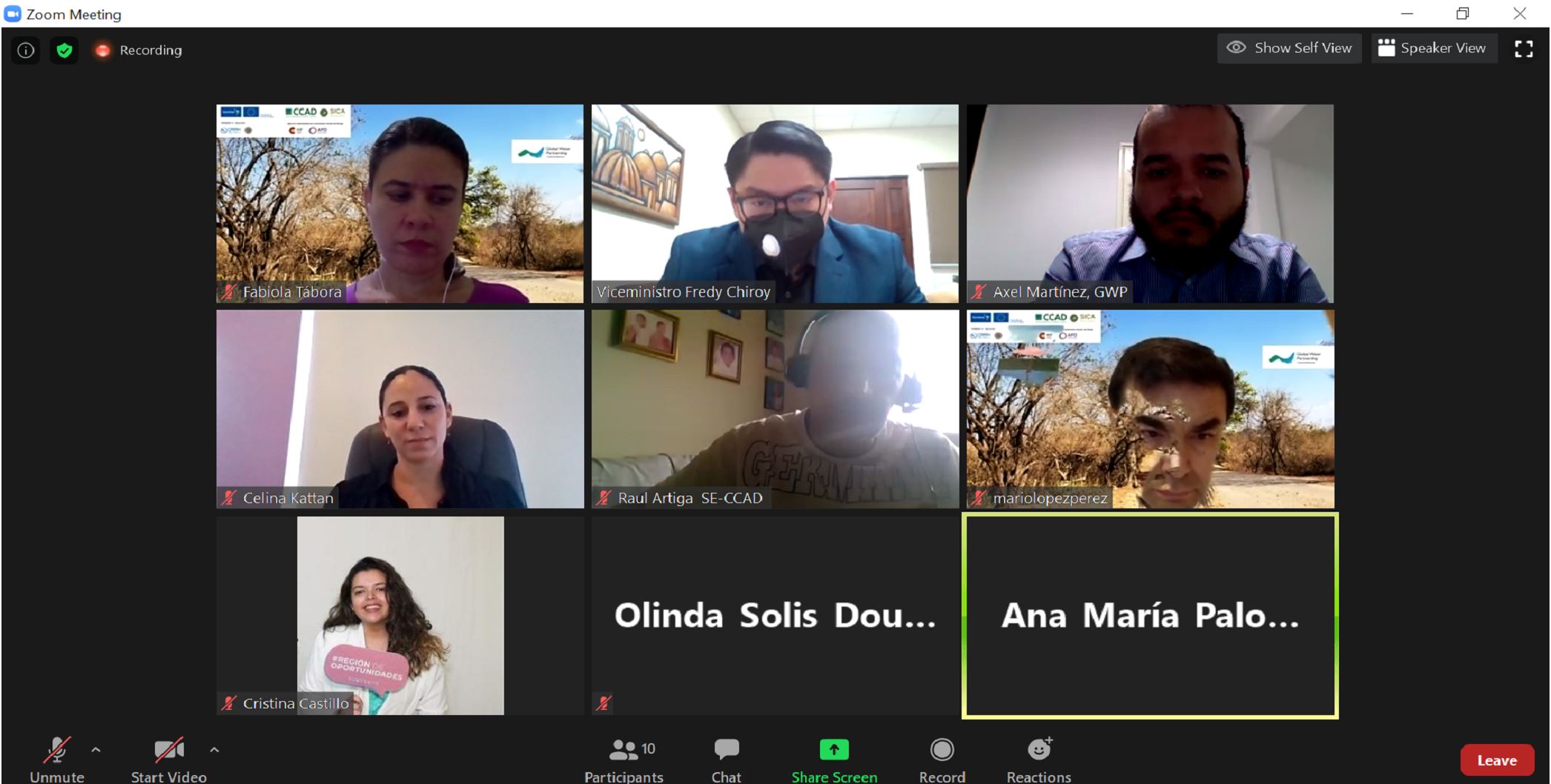High-level officials of the Ministries of Environment from each country as well as technical teams related to drought from the ministries participated in the reporting back sessions, carried out during the month of August. In each of the three sessions, GWP Central America presented a summary of the experience, including the number of participants and organisations represented, feedback from the participants, as well as recommendations and conclusions to be taken into consideration in the next steps to be prioritised for an effective drought management, including the preparation of drought policies at country level.
In general, the comments form the Ministries of Environment were positive. In the case of Honduras, the Water Resources Directorate said that the training was timely and has been useful in the current process of preparing a draft National Drought Management Plan, as well as to strengthen the desertification policies.
“This workshop coincided with preparation of the National Drought Management Plan and it gave us many ideas for actions to include in the plan. The experiences of other countries and having a broader perspective was very useful and we have suggestions to include in plan,” said Ivis Meza, Water Directorate, Ministry of Environment of Honduras.
Freddy Chiroy, Vice Minister of Environment of Guatemala said that the Ministry had prioritised water resources in their agenda and therefore, the training was very much aligned to their needs.
"The results from the training strengthen what the ministry has visualized, and support the integration of the public strategies that we are developing regarding this issue. So the training has been pertinent and we appreciate the support offered,” said Chiroy.

